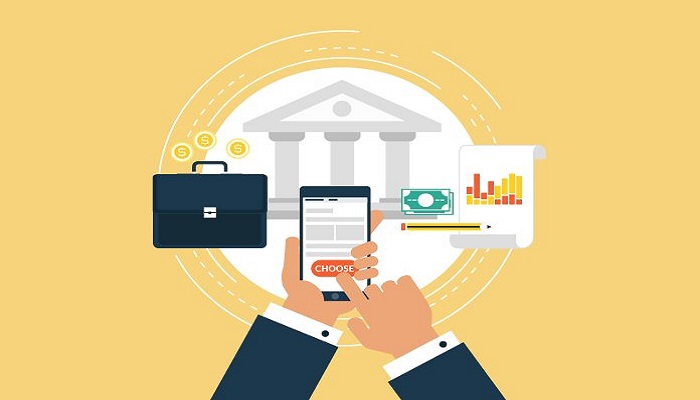There is no bank that is perfect, but choosing the right bank for your business can help you get the most your business needs to grow.
Since you can’t do business successfully without a good banking relationship, it is very important to understand these 5 things to consider when choosing a bank.
Even if a bank is ready to invest other people’s money in your business, the bank won’t still be perfect for you if what it offers is not exactly what your business needs.
You might not have any problem running your business with your personal funds. But if you have problems with your return on investment (ROI), then you need very good investment advice from your bank.
But because all business owners can’t have the same business goals, it becomes very difficult for every bank to meet everybody’s business needs at the same time.
But the question is, how many small business owners get exactly what they need from their banks?
That calls for the need to know things to consider when choosing a bank.
According to Forbes two out of every three new jobs are small businesses and that has been the force behind American innovation and global competitiveness.
The majority of the small businesses rely on the personal funds of the owners and that makes the sector very uncertain to cope with financial issues.
If you need to build an effective banking relationship that can help you achieve your business goals, this post is for you.
It would guide you on how to choose a bank.
What to Consider when Choosing a Bank for a Business
1. Access To Business Funds
An access to financial assistance or working capital is one of the things to consider when choosing a bank.
As a small business owner, fund tops your business needs. It is the major issue plaguing small business owners. If you need funds, ensure you choose a bank that has the capacity.
Although one thing is for a bank to offer a financial service, the other is your eligibility. What each bank requires may differ.
So, if you want to choose a bank, make sure you don’t choose the one that will ask you to provide a C of O when you don’t own land.
2. Security of Fund
This is also another big factor to consider when choosing a bank. In recent time, we see a proliferation of micro-finance banks and banks taking over other banks.
If those banks were not secured, customers would be in trouble as the affected banks closed shop.
So, before you choose a bank, ensure the bank is genuinely secured and regulated by the Federal Ministry of Finance (FMF), Central Bank of Nigeria (CBN), Nigeria Deposit Insurance Corporation (NDIC), and Security and Exchange Commission (SEC), and so on.
If you open an account with a bank that is not secured and the bank liquidates, your money is gone.
So, considering this factor is to guarantee your money is in a safe hand.
3. A Partner Not Just A Bank
When building a banking relationship, your needs determine things to consider. Before a bank can meet your expectations, it has to present itself to you as a partner not just as a bank.
The best bank for small businesses should be the one that has services, products, and resources that can help its customers grow.
According to Jeffry Pilcher, in 5 Things Business Owners Expect from their Bank if all that your bank can offer your business is a loan with a high interest rate, hidden and excess fees, they are not going to help you grow but rather help you go bankrupt.
So, beware of such banks.
4. Investment Advice
Small business owners don’t just need funds but the best advice on how to invest and run their businesses successfully.
Business development training doesn’t concern only those who are given loans. Others too can benefit to help small businesses grow.
Banks may not directly be the ones offering the training but can partner with training professionals to educate their customers.
Banks can also create a forum where all concerned customers can meet, learn, and exchange ideas regarding current business and economic issues.
Since it is not the pleasure of someone to start a business and liquidate, banks should be able to offer timely support that would help a business to sustain.
In case you want to make a wrong money move, getting timely advice from your bank will guide you.
Meanwhile, the responsibility of each bank should go beyond giving loans to small business owners and taking possession of their properties when there is a problem regarding the loans.
It should be part of their responsibility to monitor the growth of their customers’ businesses and offer additional support where necessary.
5. Personalized Customer Service
Personalized customer service is one of the things to consider when choosing a bank. It helps banks to foresee problems regarding their investments and intervene before the problem looms.
Customers want banks to personalize their financial solutions. Hence it is of great value for the banks to make their services reach the right customers.
The strategy can serve these four advantages to banks that strive to be the best:
- To ensure customers are given the exact services or products suitable for their business needs;
- To foresee problems regarding investments or banking relationships;
- To enhance the customer experience; and
- To gain customer loyalty.
If you need a short-term loan but apply for a long-term loan, you should get a short-term loan. The bank should not lure you into a long-term loan because that will fetch the bank more profit.
The strategy allows banks to use both physical and virtual means to meet their business needs.
It is a multi-channel approach to customer experience, which includes the use of online banking, ATM, POS, in-branch experience, inter-banking experience, social media platforms, customer data, and putting customers first.
Consequently, the relationship strategy will give the banks a better understanding of your business needs and recommend the best options.
As one of the things to consider when choosing a bank, personalized customer service is meant for a bank that deems it fit to add value to its services.
As a good entrepreneur who plans against the unforeseen, you have to put your attention on your banking relationships and make a quick move when the need arises.
Conclusion
The benefit of knowing things to consider when choosing a bank is not just to open a business account with a bank, deposit or withdraw money and obtain loans but also to get a good banking relationship that can make your business improve.


